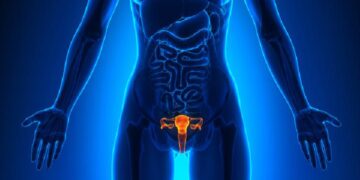Features of gastric septal surgery
Reducing the volume of the stomach by 15% to 30% to reduce the volume of the stomach for the purpose of reducing food intake.
Preoperative preparation.
Gastrointestinal preparation Preoperative &F patients avoid eating fried, indigestible and gas-producing foods to reduce intestinal distension. Fasting and abstaining from food and drink the night before surgery, and inserting a gastric tube on the morning of surgery. In addition, patients should make good preoperative psychological adjustment, actively communicate with the doctor, establish a trusting relationship and eliminate tension.
Postoperative care.
Follow the doctor’s instructions, abstain from food and drink on the day of surgery, give a full amount of liquid food from the first day to the fifth day after surgery, give semi-liquid food from the ninth day to the eighth day after surgery, and gradually resume normal diet after the ninth day, with soft food as the main food, eat the appropriate amount of control, and stop eating when the stomach feels slightly full and distended.
Effects of gastric compartment surgery.
1. At least 25% to 30% of the original body weight can be lost after surgery.
2. If the caloric intake is not controlled, the weight will be regained.
3. The volume of the stomach is reduced, so the amount of food eaten is reduced, but only soft or liquid food can be consumed.
Advantages of surgery.
Three studies in the United States have shown that if gastric bypass surgery is performed, the mortality rate of overly obese patients is four to five times lower than that of obese people who have not undergone the surgery. Other studies have also shown a reduced rate of pregnancy complications after bariatric surgery.
Caution.
This surgery is considered a “last resort” because not only is the surgery itself dangerous, but the likelihood of complications such as blood clots and torn sutures is also high in severely obese people who undergo the surgery. If the weight is not much more than the standard, it is better not to do it for the sake of health.





































